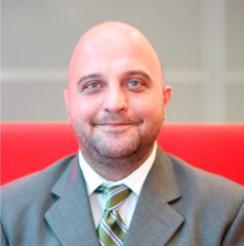In the first in a series of blogs from the front line we hear from Andrew Chaggar on how his personal experience of tragedy turned him from electronic engineer to relief worker, founding European Disaster Volunteers and the difference that aid is making in Haiti.
Six years ago, I was a senior engineer with an electronics company in Germany. I spent my days in a modern, air-conditioned office and then returned home to a comfortable apartment. Today I’m in Port-au-Prince, Haiti working out of a combined office/bedroom that’s about the same size as my old bathroom in Munich.
This may sound like a step backward, but my motivations have changed pretty dramatically since I was living in Germany. As this is my first blog for Civil Society I thought I’d take the opportunity to introduce myself and explain why I traded a comfortable life for one that currently finds me living in the poorest country in the western hemisphere.
In late 2004 I started a planned one-year trip around the world with my then partner, Nova. While we were excited to explore foreign lands the plan was to return to the UK afterwards and settle down. Sadly we were only seven weeks into the trip when the tsunami slammed into the coastal town of Khao Lak, Thailand, where we were staying. I was seriously injured and I never saw Nova again.
These experiences made me acutely aware of the devastation natural disasters can inflict and that the physical damage, while the most visible, is not necessarily the most significant. My actual injuries were most apparent but the feelings of impotence at being unable to protect Nova and the complete loss of control in my life were much worse.
A positive road to recovery
After completing my recovery, I returned to Khao Lak in August 2005. My drive to return was complex. In part it was an effort to regain control of my life, but I’d also been deeply affected by the tsunami and simply wanted to help. For the next thirteen months I volunteered as a construction manager helping one community rebuild 67 permanent homes.
This was my first experience in disaster response and I was fortunate to join a Thai-led group that used physical reconstruction as a base for wider recovery initiatives. Communities were encouraged to direct the rebuilding of their own homes to boost skills and confidence and to form networks to share lessons and build organisational capacity.
While volunteering in Thailand I became interested in the nature of disaster recovery. In 2006 I started a Masters degree in social development policy and management. I focused heavily on the links between disasters, relief and development.
In 2007 I travelled to Pisco, Peru to volunteer in the aftermath of an 8.0 earthquake which had left around 100,000 homeless. I worked with two US based groups, firstly on school reconstruction and then as a sanitation project manager.
While I’ll always be a fan of their work, there wasn’t as much emphasis placed on tying physical and non-physical assistance together. Wanting to use physical projects as a base for affected communities to lead their own recovery was among my reasons for co-founding European Disaster Volunteers (EDV), the charity I am now working for in Haiti.
Developing a community response
EDV focuses on helping disaster affected communities achieve sustainable recovery. This means engaging with survivors to identify their own long-term priorities and then working in partnership with them to implement projects that leave them stronger and more self-sufficient. As a result EDV doesn't arrive in a disaster zone with a fixed agenda, such as providing housing or sanitation, but develops projects based on community input.
We’ve been active in Port-au-Prince since June of this year and I have been delighted to discover that civil society in Haiti is incredibly vibrant. A major part of our work is focusing on supporting the many local, community-based groups we’ve identified.
Of course there are many huge challenges to operating in what was already an incredibly poor country before last January’s earthquake. In future blogs I will discuss the ups and downs of working with volunteers in a disaster zone, introduce the local context and discuss how it is affecting our work.
In the process I’ll shine a spotlight on some of our projects to illustrate how survivor-directed recovery works on the ground and talk more about our local partners and the challenges they face. I’ll also keep an eye on the media and respond to any interesting articles I read in regards to Haiti or other disasters that hit the press.
Overall, I’m looking forward to the opportunity to talk more about sustainable disaster recovery and to reading any comments or questions you might have. Thanks a lot and see you next month.
Andrew Chaggar is one of the eight 2010 Vodafone Foundation World of Difference International winners. To find out more about this opportunity visit www.vodafone.co.uk/worldofdifference









